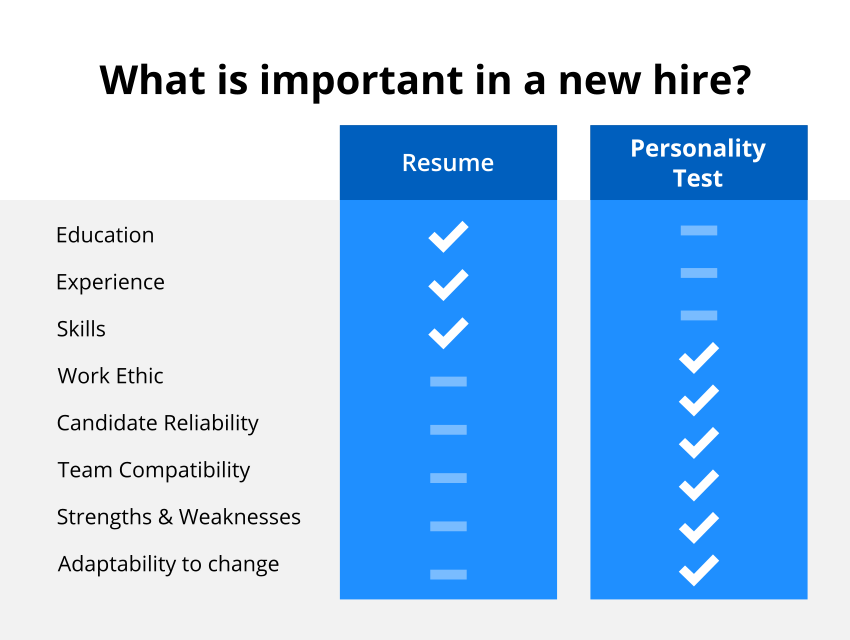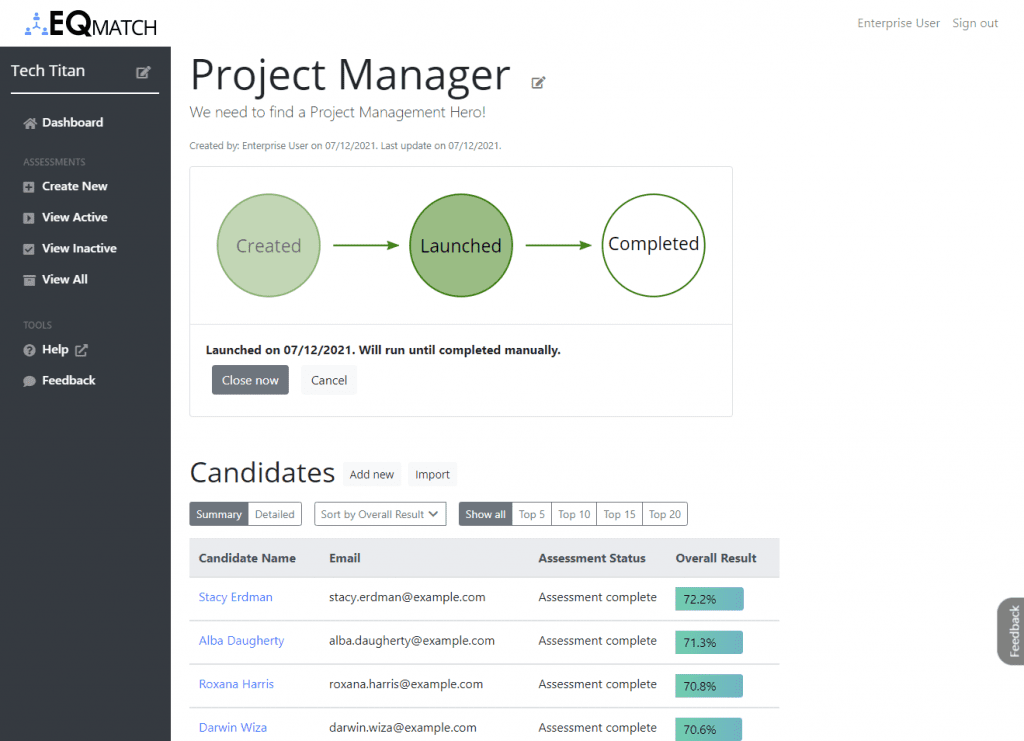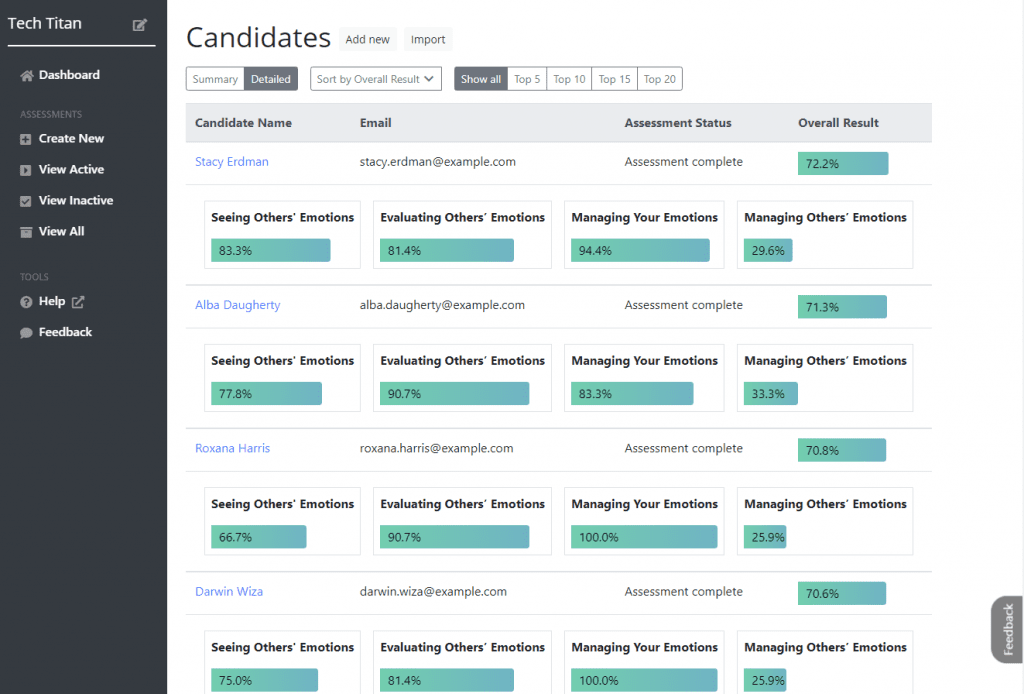People can make or break your business.
Having the right human capital can take your business to new heights.
On the flip side, bringing in talent that is not aligned with your business (goals, mission, and vision) can be detrimental to your growth.
As per the U.S. Department of Labor, a poor hire could cost a business up to 30% of the employee’s first-year earnings. Gallup suggests that US businesses lose between $450 billion to $550 billion every year due to disengaged employees.
A poor hire can result in financial loss to a business due to lost productivity, lost clients, damaged reputation with customers (resulting in damaged business reputation), decreased teamwork, and recruitment costs.
From drafting a job post to paying for a job posting, HR professionals spend a great deal of time and energy in hiring. Screening resumes, communicating back and forth with candidates, scheduling and conducting interviews, performing background checks, negotiating salary, and other aspects of hiring cost both time and money.
Is there a way to minimize these issues related to hiring the wrong candidate?
Welcome to the world of personality assessment for hiring. Let’s talk about these tools for personality assessment.
What is a Personality Assessment?
Put simply, a personality test is used to assess human personality.
A personality assessment for hiring is a scientific assessment that helps HR and hiring professionals dive deeper into a person’s traits across diverse work-related situations.
Using a personality assessment, one can assess the general outlook, work attitude, and compatibility with organizational culture.
Why Personality Assessment for Hiring?
A resume or CV does a good job of expressing the work experience of a candidate. As a hiring professional, you can get insights into the qualifications and experience of the job applicant using their resume.
However, a resume cannot predict how a candidate will perform at a job.
The fact of the matter is that most candidates do not express their true selves during interviews. It is human nature to express ourselves in a way that shows us in a good light.
This is where personality assessments can help fill the void.
Here is a quick comparison between a resume and a personality test to help you understand the key differences between those two:

Another benefit of using a personality test is that it helps reduce turnover. Understanding and applying personality psychology can help improve communication & collaboration, leadership, and professional development of employees. These, in turn, lead to happier and more satisfied employees. And as you know happier employees are less likely to leave your organization.
And if you are a leader wondering if personality assessments will impact the bottomline, then you are in for a treat. Personality tests offer long-term cost savings through employee satisfaction and increased team productivity.
Types of Personality Assessment for Hiring
Do personality tests work for hiring? Well, as per Forbes, 80% of Fortune 100 companies use personality assessments for hiring.
Which is the personality assessment test for hiring?
Let’s dive into the different types of personality assessments for hiring out there.
Personality tests MBTI: Myers Briggs Type Indicator
The MBTI personality test is one of the oldest personality assessments.
The Myers Briggs personality test has 16 types of personality categories.
Personality tests MBTI try to assess whether a person is more extroverted or more introverted, whether the person decides through thinking or feeling, whether they collect information through sensing or intuition, and whether they organize through perceiving or judging.
Test takers get a four-letter code based on their personality type.
One may fall under one of these personality types when using the MBTI personality tests- ISTJ, ISTP, ISFJ, ISFP, INFJ, INFP, INTJ, INTP, ESTP, ESTJ, ESFP, ESFJ, ENFP, ENFJ, ENTP or ENTJ.
Myers Briggs Pros & Cons
The Myers Briggs’ 16 Types Personality Test aims at helping people understand themselves better by understanding that different people possess different personalities.
Pros:
- Very widely known
- Makes it easy to understand how to approach and connect with people with different personality types
- Great team building exercise
The Myers Briggs’ 16 Types Personality Test has a few major issues:
- Reliability
- Validity
- Doesn’t capture the full extent of personality
- Bimodal Grouping
- Illegal if used as part of the candidate selection process, since it has no job related traits.
The MBTI is a self-reported and subjective test.
Participants of self-reported tests tend to put themselves in a better light, making it difficult to gauge results. Myers Briggs test is relying on subjective personal interpretation of one’s own skills and self-reflection, rather than factual objective evidence.
Unlike MBTI, EQMatch is an objective assessment that can reliably measure skills by presenting participants with emotionally charged scenarios and requiring them to select multiple correct answers.
Riso-Hudson Enneagram Type Indicator (RHETI)
The RHETI personality assessment test is one of the most popular Enneagram tests out there.
This assessment yields a personality profile across nine different personality types.
The user gets a report that shows the relative strengths and weaknesses of all nine personality types within their overall personality.
RHETI Pros & Cons
The RHETI personality assessment can help recruiting managers get a better understanding of the applicant’s emotional outlook.
This assessment is useful for self-discovery.
However, RHETI has some pertinent issues.
The RHETI is another example of subjective and self-reported personality assessment. Participants of self-reported assessment tend to attempt to provide socially acceptable answers rather than truth
The biggest limitation of RHETI Ennegram test is that it fails to provide a complete picture of our psychology. Because of these reasons, RHETI is not useful as a pre-employment assessment
DiSC
The DiSc assessment tries to highlight the behavioral patterns and tendencies of the test taker.
It can help recruiters understand whether a candidate can be compatible with an individual or a team.
The biggest advantage of DiSC is that it is relatively less time-consuming. Candidates can complete the assessment in under 15 minutes.
What about the downside of DiSC?
This assessment offers weak support in terms of scientific validity. In other words, DiSC has a low utility in predicting important outcomes.
Since this assessment puts participants into categories, scores and interpretation of results fall into a limited group of pre-identified groups, limiting the accuracy of identifying a participant’s position within a category of the topic being measured.
Caliper Profile
Unlike most other assessments and personality tests described above, the Caliper profile tries to match a candidate’s traits to validated job description success models. This assessment helps measure Personality and intelligence (IQ; abstract reasoning).
In other words, this assessment helps recruiters with an overview of a candidate’s strengths and weaknesses with respect to the role they applied for. The Caliper Profile also offers specific questions to ask candidates to uncover more details. This assessment can also be used for employee development.
What are the shortcomings of Caliper Profile?
Personality items questions are subjective where they do not have correct answers, and that leaves room for bias in evaluating and interpreting the results.
EQMatch Assessment
Next we have EQMatch Pre Employment Assessment.
Being an objective personality assessment for hiring, EQMatch does away with the core issue of most personality assessments for hiring mentioned earlier.
EQMatch Emotional Intelligence assessment solution is scientific, reliable, quick, and user-friendly.


Personality Assessment for Hiring: Conclusion
A large metropolitan hospital reduced their employee turnover from 65% to 15% after using emotional intelligence in their
At a Motorola manufacturing plant 93% of employees increased their productivity after the Plant adopted an Emotional Intelligence and stress-reduction and program
Due to a high Emotional Intelligence culture, Southwest Airlines have just 4% voluntary turnover.
Companies using emotional intelligence in their hiring and training are observing a significant difference in their turnover, their productivity, and their overall success.
Level up your hiring and retention with a scientific and reliable personality assessment solution.



No responses yet